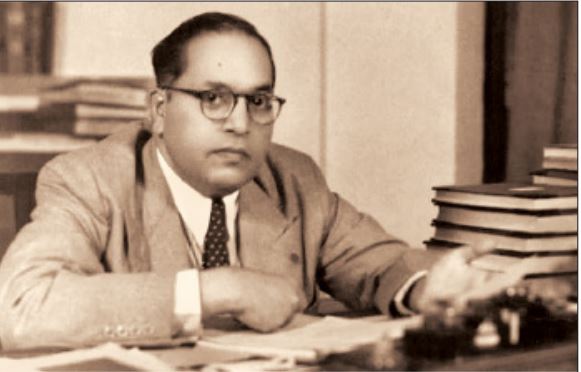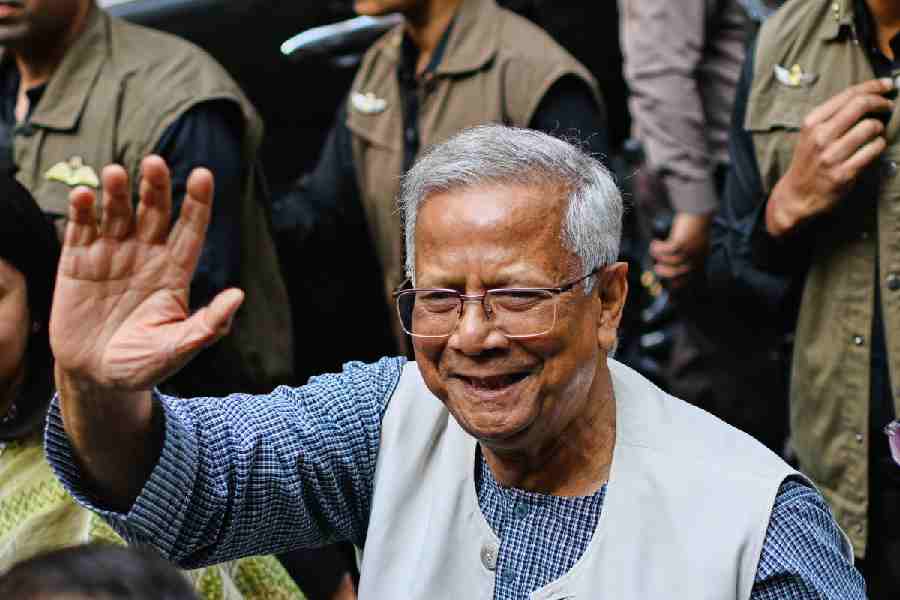One of modern India’s architects — Babasaheb B.R. Ambedkar — was born 132 years ago today. His remarkable life remains an enduring inspiration for all Indians. Babasaheb Ambedkar developed his talents as an economist, jurist, scholar and politician, rising up from a modest background and struggling against poverty and caste-based discrimination. As a social reformer, he struggled throughout his life for justice on behalf of Dalits and all other backward communities. As a political philosopher, he rejected the caste system, imagining instead a society with justice for all, based on the cherished values of liberty, equality and fraternity. Babasaheb Ambedkar’s leadership in drafting newly-independent India’s Constitution gave him the opportunity to cement these values into the foundations of our nation and its government.
As we honour Babasaheb’s legacy today, we must remember his prescient warning that the success of the Constitution depends on the conduct of the people entrusted with the duty to govern. Today, the regime in power is misusing and subverting the institutions of the Constitution and weakening its foundations of liberty, equality, fraternity and justice. Liberty is threatened by misusing the law to harass people rather than to protect their rights. Equality is assaulted by favoured treatment to chosen friends in every sphere, even as the vast majority of Indians suffer economically. Fraternity is eroded by deliberately manufacturing an atmosphere of hatred and polarising Indians against each other. The resultant injustice is amplified by pressuring the judiciary through a sustained campaign.
This is plain for most Indians to see. At this junction in our nation’s history, we must act to defend the Constitution from this systematic assault. All Indians, wherever they stand — political parties, unions and associations, citizens in groups and as individuals — must play their part at this critical time. Dr Ambedkar’s life and struggle teach critical lessons, which can serve as a guide.
The first lesson is to vigorously debate and disagree, but ultimately work together for the nation’s interest. The history of India’s freedom struggle is full of sharp disagreements among Mahatma Gandhi, Jawaharlal Nehru, Dr Ambedkar, Sardar Patel, and many others. These debates naturally attract interest, as they offer many perspectives on serious questions about our future. But we must not forget that ultimately, all the eminent men and women who fought for our freedom worked together for our independence and to shape our nation. Their ups and downs at different times only show that they were fellow travellers on a common journey, and they were well aware of the fact.
Dr Ambedkar’s conduct as the chairman of the Constituent Assembly’s Drafting Committee exemplifies this principle. Even a glimpse at the debates shows that he was a true democrat. He discussed his ideas, heard vigorous, sometimes vicious, disagreements, defended his principles, and changed his mind when needed. In his final speech, he particularly acknowledged his gratitude to his ideological opponents. He also shared credit with the other members of the Committee, his team, and the Congress Party, which he said was “entitled to all the credit for the smooth sailing of the Draft Constitution” through its discipline. Today, all of us fighting to defend Babasaheb’s Constitution must remember this sense of unity of purpose despite differences in views.
The second lesson is to encourage a spirit of fraternity, the bedrock of the nation. Babasaheb believed deeply in the importance of nurturing a brotherhood of Indians as one people, saying “without fraternity, equality and liberty will be no deeper than coats of paint.” In his final speech, he discussed how the caste system strikes at the roots of fraternity — and called it “anti-national”. This phrase is abused by those in power today, but Dr Ambedkar explained its true meaning — the caste system is “anti-national” because it brings about separation, generates jealousy, antipathy — in short, because it divides Indians against one another.
Today, the real ‘anti-nationals’ are those who are misusing their power to divide Indians against one another — on the grounds of religion, language, caste and gender. Thankfully, despite the regime’s efforts, the sense of fraternity runs deep in Indians. The example of crores of Indians from all walks of life who protested against religious divisiveness, raised their voices for livelihoods of farmers, and helped to their best abilities during the Covid-19 pandemic proves this beyond doubt. We must always nurture this sense of brotherhood and defend it from attacks — in our households, communities, and organisations.
The third lesson from Dr Ambedkar is to always fight for social and economic justice. Dr Ambedkar fought for the rights of Dalits as well as the rights of all individuals and communities who were marginalised. The system in the Constitution for backward classes and minorities is flexible and expansive, and has enabled progressive action for their welfare. For example, Article 340 provided for a Commission to investigate the conditions of backward classes which was the basis of the Mandal Commission.
In his private life too, Dr Ambedkar was a campaigner for social and economic justice, with his writings relentlessly attacking untouchability and the caste system, rationally exploring India’s great religions, and his attempts to organise Dalit communities to claim their rights.
Today, the challenges of ensuring social justice have taken new forms. The economic reforms of 1991 introduced by the Congress government have increased prosperity, but we now see growing economic inequality. Reckless privatisation of public sector units is narrowing the system of reservation, which offered security and social mobility to Dalits, Adivasis and OBCs. The advent of new technologies is threatening livelihoods but also creating opportunities to organise better and ensure greater equality. The challenge is to learn from Babasaheb Ambedkar and ensure social justice in these changing times and act on our convictions in our public and private lives.
It is fitting to end with Babasaheb Ambedkar’s last words in the Constituent Assembly: “If we wish to preserve the Constitution... let us resolve not to be tardy in the recognition of the evils that lie across our path... nor to be weak in our initiative to remove them. That is the only way to serve the country. I know of no better.” These words must be our resolve in the years to come.
Sonia Gandhi is the Chairperson of the Congress Parliamentary Party










